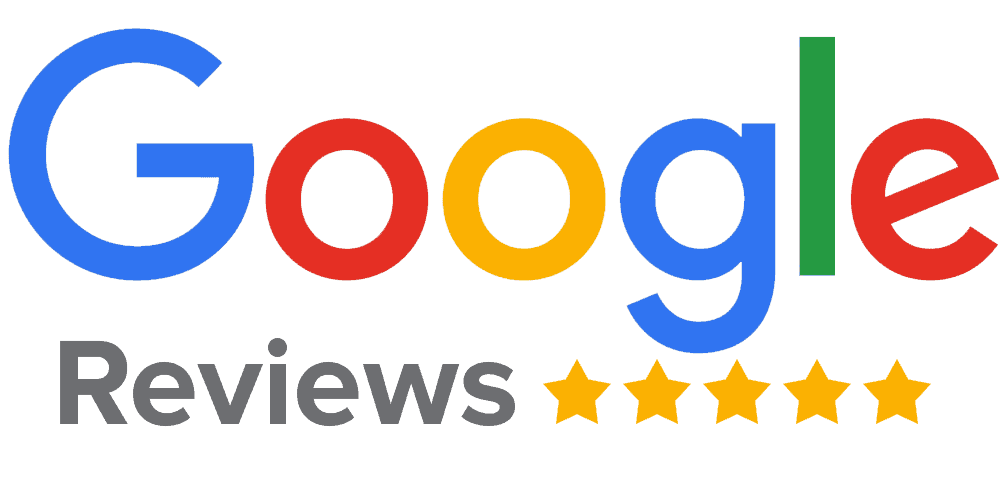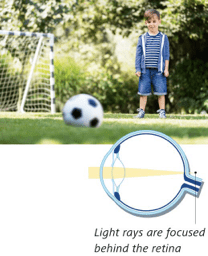Menu
Long-sightedness, or hyperopia, is a refractive error of the eye that can be compensated for or corrected. Book a consultation today & find out how laser eye surgery can help.


If your spectacle prescription begins with a plus number e.g. +1.00 you are hyperopic.
Hyperopia results when either the length of the eyeball is shorter than average or the cornea is flatter than average or a combination of the two. A far-sighted person can see distant objects clearly, often very clearly, but has difficulty seeing objects close to e.g. reading or seeing food clearly. People who are far-sighted often experience symptoms of eyestrain or fatigue when performing work at close range.
When the crystalline lens is able to accommodate or focus, even quite large amounts of hyperopia can be naturally compensated for without the person being aware of this. Only later in life when the lens loses flexibility does this become apparent with much earlier onset of presbyopia. If the amount of hyperopia is different between the eyes this can affect ocular alignment and cause a strabismus or squint. Hyperopia can also lead to one eye failing to develop normal neural corrections so that a normal level of vision is not achieved, this is called amblyopia or a ‘lazy eye’. Hyperopia increases with age independently of presbyopia but hyperopia will bring the symptoms of presbyopia forward so that glasses for reading and close tasks will be required much sooner.


Spectacles provide a short-term solution to hyperopia correction and for low levels of hyperopia when vision is otherwise normal are typically worn from the 30’s onwards for close work. High index lenses are often chosen to reduce the weight of hyperopic prescriptions. Contact lenses provide much more visual freedom but as hyperopia is often associated with presbyopia glasses may be required as well as contact lenses for close tasks.
LASIK and ASA are all methods employed to correct hyperopia accurately and safely. ASA or LASEK is similar to PRK and was the first excimer procedure to be performed to correct vision, visual outcomes are the same as the others but surface treatment have a slightly slower and less comfortable recovery. The Mel®90 excimer laser is able to compensate for angle kappa correction as is the Visumax® femtosecond laser offering an extra level of accuracy for correction of hyperopia. Laser vision correction can offer additional benefits such as improving peripheral vision which can feel more natural than with spectacles which magnify the image.
The ICL procedure employs a thin, biocompatible Collamer® lens to sit behind the iris (so that it is not visible), in front of the natural crystalline lens (so that accommodation is preserved) and can correct hyperopic errors from +0.50D to +10.00. It is an effective alternative if the cornea is unable to support laser vision correction.
Precise measurements are made of the eye when cataract or lens replacement surgery is planned. Correction of hyperopia and astigmatism will be factored into the calculation of intra-ocular lens power, whichever type of lens is selected. As many people who are hyperopic are also presbyopic your medical consultation will include a thorough assessment to determine your visual aims and your suitability for multifocal or extended depth of focus lenses will also be assessed.
As hyperopic people will require involuntary effort to focus, symptoms can include ocular fatigue, difficulty in concentrating on close work, tension and headaches.
Hyperopia can be diagnosed by a comprehensive eye examination which may include a cycloplegic exam where eyedrops are used to temporarily prevent accommodation. Far-sighted people often have good distance vision so visual screenings which concentrate on distance vision testing may not detect hyperopia.
No, like presbyopia correcting vision fully will not make hyperopia worse. For children it is important to correct hyperopic errors if recommended by a specialist to do so as this may be an important part of preventing the development of a lazy eye or strabismus. AS an adult, not wearing glasses will not make the condition worse but your eyes will be working harder to focus and symptoms of eyestrain may result.
Precise measurements are made of the eye when cataract or lens replacement surgery is planned. Correction of hyperopia and astigmatism will be factored into the calculation of intra-ocular lens power, whichever type of lens is selected. As many people who are hyperopic are also presbyopic your medical consultation will include a thorough assessment to determine your visual aims and your suitability for multifocal or extended depth of focus lenses will also be assessed.
Nuffield Health Wessex Hospital
Winchester Road, Chandlers Ford
Eastleigh, Hampshire
SO53 2DW
© Anderson Eye Care 2020. All Rights Reserved. Made by Digital Roo.
Enter your details below to get instant access to your free laser eye surgery infopack.